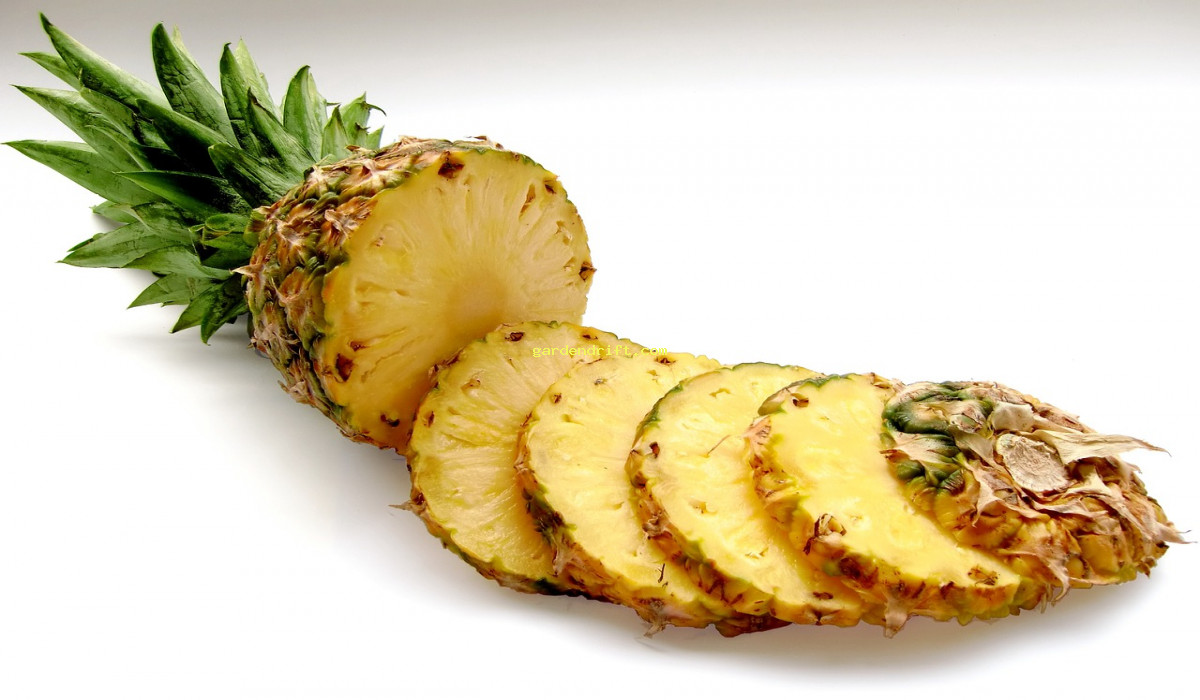5 Ways Pineapple Plants in 2024 Will Revolutionize Your Garden. Looking for the perfect addition to your garden in 2024? Consider pineapple plants! These tropical fruits not only bring a touch of paradise to your yard but are also surprisingly easy to grow. With the right care, you can enjoy a bountiful harvest of juicy pineapples straight from your own backyard. Get ready to impress your friends and family with fresh pineapples in just a few years. Start planning for your pineapple plants now and thank us later! 5 Ways Pineapple Plants in 2024 Will Revolutionize Your Garden
5 Ways Pineapple Plants in 2024 Will Revolutionize Your Garden
The Evolution of Pineapple Plants in 2024
Pineapple plants have been a cherished fruit for centuries. Native to South America, this delicious and spiky fruit has made a name for itself in the global market. It is not just a symbol of tropical paradise, but also a source of income for many countries. But as the world continuously evolves, so do pineapple plants. What will these fruits look like in 2024? 5 Ways Pineapple Plants in 2024 Will Revolutionize Your Garden Let’s dive into the possible changes and advancements in the world of pineapple plants in the upcoming years.
Growing Techniques: From Traditional to High-Tech
Traditionally, pineapple plants are grown in tropical climates, with sandy and well-drained soil. However, with the advancements in technology, new techniques for growing pineapples have emerged, allowing for cultivation in various environments. Some of these techniques include the following:
• Hydroponics – This method involves growing pineapples without soil, using only nutrient-rich water. This technique is ideal for urban areas where there is limited space for traditional farming.
• Aeroponics – Similar to hydroponics, this method also does not require soil but instead uses a misting system to provide nutrients to the plants. This technique is becoming popular as it requires less water and space, making it environmentally friendly.
• Vertical Farming – As urbanization continues to increase, space for traditional farming is becoming restricted. Vertical farming allows for pineapples to be grown indoors on stacked shelves, providing an efficient way to grow pineapples in limited spaces.
With these advanced growing techniques, pineapples can be grown all year round, leading to a constant supply of this delicious fruit in the market.
New Varieties: Sweeter and More Disease-Resistant
Currently, the dominant pineapple variety in the market is the smooth cayenne. However, breeders are continuously working to create new varieties that are sweeter, juicier, and more disease-resistant. The most popular new variety in the market is the MD2 pineapple, also known as the “gold” pineapple. This variety has a higher sugar content, making it sweeter and more in demand. Additionally, this variety is resistant to diseases, producing a higher yield compared to other varieties.
In 2024, we can expect to see even more delicious and resistant pineapple varieties, thanks to continued research and advancements in breeding techniques.
Organic Pineapples: Meeting Consumer Demands
With increasing awareness of health and environmental concerns, consumers are demanding organic produce, including pineapples. In response to this demand, pineapple farmers are shifting towards organic farming methods, such as using natural fertilizers and pest control methods. In 2024, we can expect to see more organic pineapple options available, meeting the demands of health-conscious consumers.
Influence of Technology: Smart Farming and Blockchain
Technology continues to impact the agricultural world, and pineapples are not exempt. Smart farming technology, such as sensors and drones, are being utilized to monitor pineapple plantations, allowing for more efficient use of resources and early detection of potential issues. This technology also helps reduce the use of pesticides, promoting sustainable farming practices.
Blockchain technology is also being introduced in the pineapple industry, providing a transparent supply chain for consumers. Through this technology, consumers can trace the origin of their pineapples, ensuring ethical and sustainable sourcing.
Challenges Faced by Pineapple Farmers in 2024
While advancements in technology and breeding techniques are greatly beneficial for the pineapple industry, there are still challenges that farmers face. Some of these challenges include:
• Climate Change – The effects of climate change, such as extreme weather conditions, can have a significant impact on pineapple production. Pineapple plants require specific environmental conditions to thrive, and any changes in these conditions can lead to a decline in yield.
• Pest and Disease Management – Despite the advancements in breeding resistant pineapples, pests and diseases are still a major concern for farmers. New pests and diseases may emerge, requiring continuous research and development of new solutions.
• Labor Shortage – Pineapple cultivation is labor-intensive, and with the decrease in available labor, farmers may face difficulties in harvesting, leading to potential losses.
The Future of Pineapple Plants: Sustainable and Accessible
Looking ahead to 2024, we can expect to see more sustainable and accessible pineapples in the market. With the integration of advanced technology and farming techniques, pineapples can be grown efficiently, reducing waste and environmental impact. As consumer demands for organic and ethically sourced produce continue to increase, pineapple farmers will adapt to meet these demands, leading to a more transparent and sustainable industry.
So, what will the pineapple plants of 2024 look like? In summary, we can expect to see a shift towards high-tech, sustainable, and accessible pineapple farming, resulting in sweeter, more disease-resistant, and organic pineapples in the market. As the world changes and demands for pineapples evolve, the industry will continue to adapt, ensuring a continuous supply of this beloved tropical fruit. 5 Ways Pineapple Plants in 2024 Will Revolutionize Your Garden

5 Ways Pineapple Plants in 2024 Will Revolutionize Your Garden. can enjoy a 5 Ways Pineapple Plants in 2024 Will Revolutionize Your Garden,5 Ways Pineapple Plants in 2024 Will Revolutionize Your Garden
Pineapple Plants in 2024: Where Are We Headed?
The world of agriculture is constantly evolving, and pineapple plants are no exception. With advancements in technology and a growing demand for sustainable practices, the future of pineapple production is set to see significant changes in the coming years. In this article, we will delve into what 2024 may hold for pineapple plants and how these changes could impact the industry as a whole.
Increasing Popularity and Demand for Pineapples
Pineapples have become a staple fruit for many, and their popularity only continues to grow. As more people become health-conscious and prioritize fresh, nutritious foods, the demand for pineapples is expected to rise even further in the next five years.
This increase in demand is not just limited to fresh pineapples. The popularity of pineapple-based products, such as juices and dried fruit, is also on the rise. With the growing demand, pineapple plantations will have to ramp up production to keep up with the market.
Vertical Farming: A Game Changer for Pineapple Production
With limited land resources and a growing population, traditional methods of pineapple farming are becoming unsustainable. This is where vertical farming comes into play. This innovative technique allows for the cultivation of crops in vertically stacked layers, using minimal land and resources.
The potential benefits of vertical farming for pineapple plants are vast. Firstly, it can greatly increase the yield of pineapples per square foot compared to traditional farming methods. Additionally, 5 Ways Pineapple Plants in 2024 Will Revolutionize Your Garden this method reduces the need for pesticides and herbicides, making pineapple production more environmentally friendly.

Introducing Automation and Robotics
The use of automation and robotics is another trend that is expected to shape the future of pineapple plants. These advanced technologies can improve the efficiency of the planting, harvesting, and packaging process while reducing labor costs and the potential for human error.
Automated robots can quickly and accurately identify ripe pineapples for harvesting, reducing food waste and increasing profits for growers. Moreover, 5 Ways Pineapple Plants in 2024 Will Revolutionize Your Garden the use of this technology can greatly benefit workers in pineapple plantations, who often face harsh working conditions.
Addressing Environmental Concerns
As with any industry, 5 Ways Pineapple Plants in 2024 Will Revolutionize Your Garden reducing the environmental impact of pineapple production is a top priority for the future. Research is being conducted on more sustainable packaging options for pineapple products, such as biodegradable or compostable packages. Additionally, 5 Ways Pineapple Plants in 2024 Will Revolutionize Your Garden the use of renewable energy sources, such as solar power, is being explored to power pineapple plantations.
A major environmental issue facing pineapple production is soil erosion. To combat this problem, sustainable farming practices, such as crop rotation and terracing, are being implemented to protect the soil and promote long-term sustainability.
Emerging Technology to Detect Disease and Pests
Pineapple plants are susceptible to various diseases and pests, which can greatly impact crop yield and quality. In the future, 5 Ways Pineapple Plants in 2024 Will Revolutionize Your Garden the use of artificial intelligence and other advanced technologies may help in the early detection and prevention of these issues.
Through the use of sensors and imaging, these technologies can identify signs of disease and pests in pineapple plants, allowing for quick and targeted treatment. This could potentially reduce the need for pesticides and save growers time and money.
Improving Genetics for Better Pineapples
The genetics of pineapple plants are constantly being studied and improved upon to create bigger, juicier, and more disease-resistant pineapples. In the years to come, genetic engineering may play a significant role in the development of new pineapple varieties.
Advancements in genetic engineering could also lead to pineapples with longer shelf lives, reducing food waste and increasing their availability. This could have numerous benefits for both consumers and producers.5 Ways Pineapple Plants in 2024 Will Revolutionize Your Garden
Pineapple Plants in 2024: A Sustainable and High-Tech Industry
In conclusion,5 Ways Pineapple Plants in 2024 Will Revolutionize Your Garden the pineapple industry in 2024 is expected to see significant advancements in terms of technology and sustainability. By implementing innovative techniques and technologies, pineapple production can become more efficient, cost-effective, and environmentally friendly. The future of pineapple plants is bright, and we can’t wait to see what 2024 holds for this delicious and versatile fruit.
In Summary
- Pineapple plants are projected to see a rise in popularity and demand in the coming years.
- Vertical farming can greatly increase yield and minimize environmental impact.
- Automation and robotics can improve efficiency and working conditions in pineapple plantations.
- Efforts are being made to address environmental concerns through sustainable practices.
- New technologies may aid in the detection and prevention of diseases and pests in pineapple plants.
- Ongoing research on genetics could lead to new and improved pineapple varieties.
- The future of pineapple plants looks bright with a focus on sustainability and advanced technologies.5 Ways Pineapple Plants in 2024 Will Revolutionize Your Garden

A Look at Pineapples Around the World
Different regions of the world have unique approaches to pineapple production. Here are some interesting facts about pineapples from around the globe. 5 Ways Pineapple Plants in 2024 Will Revolutionize Your Garden
Philippines
The Philippines is one of the largest producers of pineapples in the world, accounting for over 20% of global production. The country is known for its unique variety of pineapple, called the “Smooth Cayenne,” which is popular for its sweet and tangy flavor.
Costa Rica
Costa Rica is another top producer of pineapples, with over 340,000 acres of land dedicated to pineapple cultivation. The country is known for its sustainable practices, including the use of renewable energy and eco-friendly packaging.
Japan
Pineapples have a special significance in Japanese culture and are considered a symbol of hospitality. The country has a unique way of growing pineapples that involves hanging them from the ceiling using a contraption called a “pineapple stake.
Nigeria
Nigeria is one of the top producers of pineapples in Africa, with the crop providing income for thousands of small-scale farmers. The country produces a variety of pineapple called “Smooth Cayenne,” which is exported to countries around the world.
France
The French island of Réunion is the only place in Europe where pineapples are grown commercially. The island is known for its special variety of pineapple, called Victoria, which is known for its exceptionally sweet taste.
The Future of Pineapple Plants is Bright
With advancements in technology and a focus on sustainable practices, 5 Ways Pineapple Plants in 2024 Will Revolutionize Your Garden the future of pineapple plants looks promising. From vertical farming to genetic engineering, these changes could have a significant impact on the industry in the years to come. As consumers continue to seek out fresh and nutritious options, the demand for pineapples is only set to grow, making it an exciting time for this tropical fruit. 5 Ways Pineapple Plants in 2024 Will Revolutionize Your Garden
Looking for the perfect addition to your garden in 2024? Consider pineapple plants! These tropical fruits not only bring a touch of paradise to your yard but are also surprisingly easy to grow. With the right care, you can enjoy a bountiful harvest of juicy pineapples straight from your own backyard. Get ready to impress your friends and family with fresh pineapples in just a few years. Start planning for your pineapple plants now and thank us later!. Pineapple 5 Ways Pineapple Plants in 2024 Will Revolutionize Your Garden
How long does it take for a pineapple plant to produce fruit?
Typically, a pineapple plant takes about 18-24 months to produce fruit after it has been planted in the ground. It may take slightly longer if the plant is grown indoors or in a cold climate.
Can you grow pineapple plants from the top of a pineapple?
Yes, it is possible to grow a pineapple plant from the top of a store-bought pineapple. Simply cut off the top, remove some of the leaves and let it dry for a day. Then, plant it in well-draining soil and water regularly until it starts to grow roots.
Do pineapple plants need a lot of sun?
Yes, pineapple plants require plenty of sunlight in order to thrive and produce fruit. They should be placed in a sunny spot and get at least 6-8 hours of sunlight per day.
When is the best time to plant pineapple plants?
The best time to plant pineapple plants is in the spring or summer, when the weather is warm and the plant has the most optimal growing conditions.
Do pineapples have to be grown in tropical climates?
Pineapples are typically associated with tropical climates, but they can also be grown in subtropical or warm temperate regions. As long as the growing conditions are suitable, pineapples can be grown almost anywhere.
Can you grow multiple pineapples on one plant?
No, each pineapple plant will only produce one fruit at a time. However, after the fruit is harvested, the plant may produce smaller “pups” or new plants that can eventually produce their own fruits.
What type of soil is best for growing pineapple plants?
Pineapple plants grow best in well-draining, slightly acidic soil with a pH of 5.5-6.5. Adding organic matter, such as compost or peat moss, can also improve the soil’s quality.
How often should pineapple plants be watered?
Pineapple plants should be watered regularly, about 1-2 times per week, depending on the weather and soil conditions. It is important to keep the soil moist, but not waterlogged.
Do pineapple plants need to be fertilized?
Yes, pineapple plants benefit from regular fertilization with a balanced fertilizer. This helps provide essential nutrients for the plant to produce healthy foliage and fruit.
How can you tell when a pineapple is ripe?
A ripe pineapple will have a strong, sweet scent and the leaves in the center of the plant will easily pull out. The fruit should also be slightly soft to the touch, but not mushy.
Can pineapple plants be grown in containers?
Yes, it is possible to grow pineapple plants in containers, as long as there is adequate space for the roots to grow and the soil has good drainage. A pot with a diameter of at least 12 inches is recommended for a single plant.
How do you protect pineapple plants from pests?
Pineapple plants can be prone to pests like spider mites and mealybugs. The best way to protect them is by regularly inspecting the plant for any signs of pests and promptly treating them with a solution of water, soap, and oil.
Are pineapple plants easy to care for?
Pineapple plants are relatively low-maintenance, but they do require some care and attention. They need regular watering, fertilization, and sunlight to thrive, and may also need protection from pests and extreme weather conditions.
.
Can pineapple plants survive the winter?
In warmer climates, pineapple plants can survive outdoors during the winter. In colder climates, they will need to be brought indoors or protected from frost and freezing temperatures.5 Ways Pineapple Plants in 2024 Will Revolutionize Your Garden
How long do pineapple plants live?
Pineapple plants can live for several years, but they typically produce fruit for a period of 3-5 years. After that, they may start to decline and produce smaller or fewer fruits.
5 Ways Pineapple Plants in 2024 Will Revolutionize Your Garden
